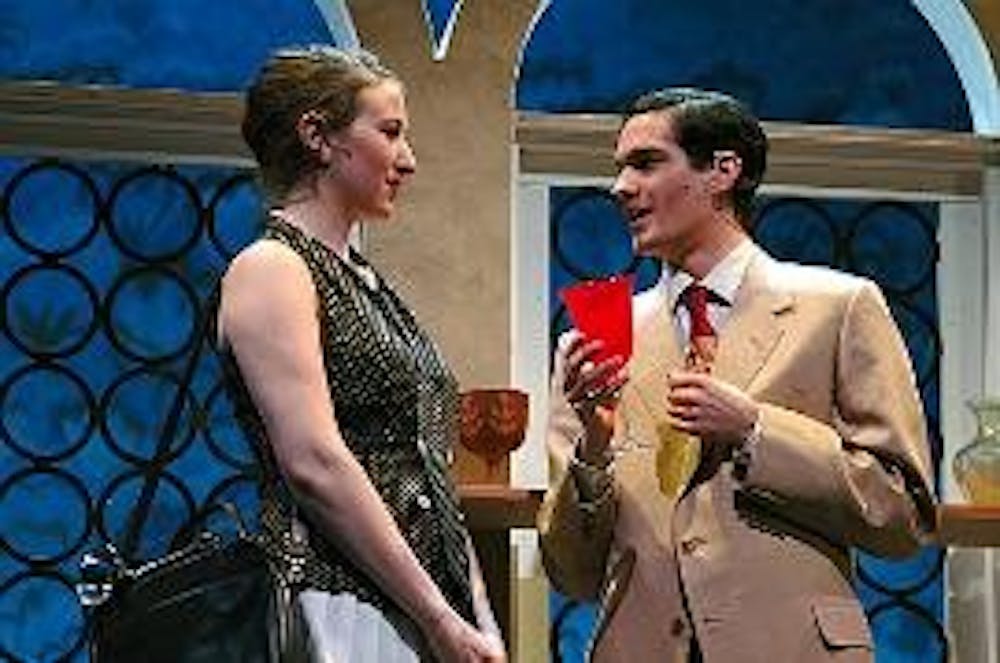The Department of Performing Arts' production of "Do I Hear a Waltz?," directed by Theatre and Musical Theatre Program Director Carl Menninger, is not a typical light-hearted musical with a happily-ever-after ending. This bitterly realistic musical, performed at the Greenberg Theatre this past weekend, asked viewers to question what happens after happily-ever-after. Through an array of complex relationships and interactions, the startling truth comes out - romance isn't always about white knights and perfect endings.
The production began with the elements of a perfect love story - bright lights on a beautiful Venetian backdrop, lush melodies and a single American woman who looks for love in one of the most romantic cities in the world.
These three components would naturally unfold into bliss, but when Leona Samish, played by Ariana Hodes, a junior in the College of Arts and Sciences, finds herself falling in love with a married Italian shopkeeper, Renato Di Rossi - played by Joshua Dick, a sophomore in CAS, she must overcome her trepidation towards infidelity and idealistic expectations of romance.
Each supporting character had a unique complexity that contributed to the paradoxes in the plot and taught Leona lessons about real love. Eddie and Jennifer Yaeger, played by John Fritz, a freshman in the School of Public Affairs and the School of International Service, and Katherine Reinert, a freshman in CAS and the School of Communication, presented themselves as a seemingly perfect couple staying at Leona's hotel. Their rocky relationship, however, taught Leona about the imperfections of marriage and the temptation of extramarital affairs.
The hotel owner, Signora Fioria, played by Chelsea-Rae Abbate, a junior in CAS, tackled thought-provoking issues about American ideals of marriage through her alluring demeanor and seduction of Eddie Yaeger.
The beauty of this story was in the honest portrayal by the actors. They presented complex characters with dishonorable motives without judgment. The audience felt their internal struggle because the actors remained committed to their roles and understood the characters as real people.
"It was a huge challenge as a director to get students who are 20 to understand that dreams sometimes have to be compromised and don't always turn out the way you expect them to," Menninger said.
The chemistry between Leona and Renato Di Rossi was gripping. Hodes and Dick convincingly presented characters beyond their years. It was almost uncomfortable for the audience to watch their interactions as their personal issues sullied what could have been a beautiful love story.
The musical, with music written by American composer Richard Rodgers and words by Stephen Sondheim, is traditional in its happy-go-lucky melodies and harmonies, but the dark subject matter of the lyrics starkly contrasts with the mood of the music.
It's a very unusual subject matter for a musical "because musicals usually involve the completion of dreams," Hodes said. "Leona still does learn something about herself, but she learns it in a very real-life kind of way."
Menninger said he felt that this gives the story its power.
"It's a beautiful story because it's complex," he said. "It's not predictable, and it raises really important questions about self-image and about being in love"





